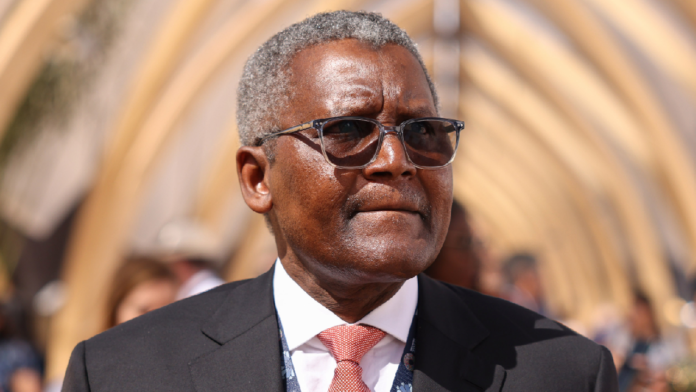The Federal Government on Monday, August 19, 2024, said it would begin the sale of crude oil in naira to Dangote Refinery starting October 1, 2024.
This was disclosed by the Minister of Finance and Coordinating Minister of the Economy Wale Edun, while presiding over the meeting on crude oil sales in naira implementation.
Leading the implementation committee, Edun said a review of the progress on key initiatives has yielded some results.
In the details of the meeting made public on its X account, the Ministry of Finance said Zacch Adedeji, the Executive Chairman of the Federal Inland Revenue Service and the Chairman of the Technical Sub-Committee, reported that the first PMS delivery from Dangote is expected next month (September) under existing agreements.
The post also highlighted key roles outlined for stakeholders, including the Nigerian Midstream and Downstream Petroleum Regulatory Authority, the Central Bank of Nigeria, the Nigerian Upstream Petroleum Regulatory Commission and the African Export-Import Bank.
According to the ministry, these agencies have been saddled with the responsibility of ensuring a smooth implementation of the sale of crude oil in naira to Dangote refineries.
In addition, the post stated that updates on the Port Harcourt and Dangote Refineries were provided, with significant production increases expected from November 2024.
It said, “The Honourable Minister emphasised the need for transparency and directed the Technical Sub-Committee to finalize details and prepare a report for the President, confirming that his directives are on track for implementation from September.”
Recall that the management of Dangote Refineries had accused the International Oil Companies (IOCs) of frustrating its refinery operations.
The company alleged that the IOCs insisted on selling crude oil to its refinery through their foreign agents.
It also argued that the local price of crude would continue to increase because the trading arms offer cargoes at $2 to $4 per barrel, above NUPRC official price, thereby limiting the refineries’ operation.



